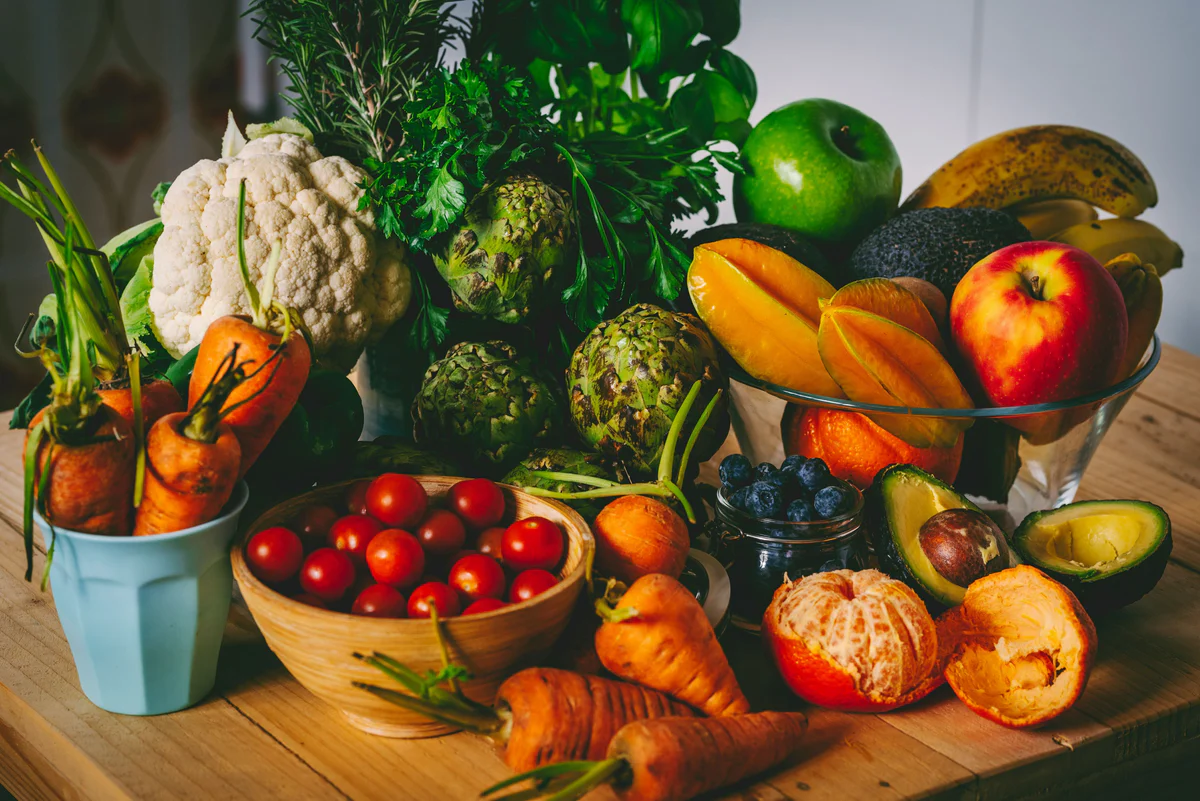The plant-based movement is gaining momentum as more people recognize the power of plant-based foods in transforming our health, environment, and society. What was once a niche lifestyle choice is now becoming mainstream, with vegan eating evolving into a global phenomenon. Whether driven by health concerns, ethical considerations, or environmental reasons, making the switch to vegan eating is one of the most impactful decisions you can make for yourself and the planet.
In this article, we’ll explore the many reasons why embracing a plant-based lifestyle is beneficial and how making the switch to vegan eating can improve your life in numerous ways.
What Does It Mean to Eat Vegan?
A vegan diet is one that excludes all animal products—no meat, dairy, eggs, or even honey. Instead, vegan eating focuses on plant-based foods like vegetables, fruits, grains, legumes, nuts, seeds, and plant-based substitutes. Many people choose to adopt a vegan lifestyle for ethical, environmental, or health reasons, and it’s not just about what you take out of your diet—it’s about the variety of nourishing, vibrant foods you bring in.
The rise of plant-based alternatives like vegan cheeses, burgers, and milks has made the transition easier than ever, and more people are opting for vegan options at home, in restaurants, and even in fast food establishments.
The Health Benefits of a Vegan Diet
One of the primary reasons people turn to a vegan diet is for the potential health benefits. Research consistently supports the notion that plant-based eating can improve long-term health and reduce the risk of chronic diseases. Here are just a few reasons why a vegan diet can be so beneficial for your health:
1. Improved Heart Health
Studies have shown that plant-based diets are linked to a lower risk of heart disease, high blood pressure, and high cholesterol. Vegan diets tend to be rich in fiber, antioxidants, and healthy fats—nutrients that support heart health by reducing inflammation, improving blood circulation, and lowering harmful cholesterol levels. Additionally, plant-based foods are low in saturated fats, which are typically found in animal products and can contribute to heart disease when consumed in excess.
2. Weight Management and Healthy Body Composition
Switching to a vegan diet can help with weight loss or weight maintenance. Plant-based foods are often lower in calories and fat compared to their animal-based counterparts, making it easier to maintain a healthy weight. Vegan diets are typically high in fiber, which helps you feel full longer and promotes digestion. Many people who switch to a plant-based diet report losing weight without feeling deprived or hungry, as plant foods are more nutrient-dense and filling.
3. Reduced Risk of Type 2 Diabetes
A vegan diet can lower the risk of type 2 diabetes. Studies have shown that plant-based eating can improve insulin sensitivity and reduce blood sugar levels. Vegan diets that are rich in whole grains, legumes, and vegetables have been shown to be more effective in regulating blood sugar levels than diets that include animal products. Furthermore, plant-based foods tend to have a lower glycemic index, meaning they cause a slower rise in blood sugar, reducing the risk of developing type 2 diabetes.
4. Better Digestion and Gut Health
The high fiber content of a vegan diet promotes healthy digestion and supports a balanced gut microbiome. Fiber helps to regulate bowel movements, prevent constipation, and nourish the good bacteria in the gut, contributing to better digestion overall. A plant-based diet can also reduce the risk of digestive issues such as bloating, IBS, and acid reflux.
5. Nutrient-Dense, High in Antioxidants
Plant-based foods are rich in vitamins, minerals, and antioxidants that promote overall health. Vegan diets tend to include an abundance of fruits and vegetables, which are packed with nutrients like vitamin C, potassium, folate, and magnesium. Additionally, antioxidants from plant foods help protect the body against oxidative stress and inflammation, which can reduce the risk of certain diseases and improve skin health.
Environmental Benefits of Vegan Eating
The environmental impact of animal agriculture is one of the biggest reasons people make the switch to vegan eating. The livestock industry is a major contributor to greenhouse gas emissions, deforestation, and water usage, making it one of the leading drivers of climate change and environmental degradation. Here’s how adopting a plant-based diet can benefit the planet:
1. Reduction in Greenhouse Gas Emissions
Animal agriculture is responsible for a significant portion of global greenhouse gas emissions, including methane, which is far more potent than carbon dioxide. By reducing or eliminating animal-based products from your diet, you can help lower your carbon footprint and contribute to the fight against climate change. In fact, studies suggest that switching to a plant-based diet could cut an individual’s carbon emissions by as much as 50%.
2. Conserving Water Resources
The production of animal products requires vast amounts of water. For example, it takes about 2,000 gallons of water to produce just one pound of beef. In contrast, growing plant-based foods requires far less water, making vegan eating a more water-efficient choice. As water scarcity becomes a more pressing issue worldwide, adopting a plant-based diet can play a part in preserving this precious resource.
3. Preserving Biodiversity and Ecosystems
The demand for land to raise animals and grow animal feed is a leading cause of deforestation, particularly in places like the Amazon rainforest. Deforestation leads to the destruction of habitats, putting many species at risk of extinction. By reducing the demand for animal agriculture, a plant-based diet helps protect forests and wildlife habitats, allowing ecosystems to thrive.
4. Reducing Pollution
Factory farming generates large amounts of waste, which can pollute nearby waterways and contribute to soil degradation. Plant-based agriculture, on the other hand, tends to have a smaller environmental footprint, reducing the impact on air, water, and soil quality.
Ethical Considerations: Compassion for Animals
For many people, one of the most compelling reasons to adopt a vegan diet is the ethical consideration of animal welfare. The conditions in which animals are raised and slaughtered for food are often distressing, with many animals subjected to inhumane practices. By choosing a plant-based diet, you can avoid contributing to the suffering of animals in the food industry.
Many vegans also seek to align their diets with their beliefs about animal rights and compassion. Choosing plant-based foods is an ethical choice that reflects a commitment to minimizing harm to animals and supporting more sustainable and compassionate farming practices.
The Taste and Convenience of Vegan Eating
One of the common misconceptions about vegan eating is that it’s bland or restrictive. However, the world of vegan food is full of bold flavors, creative dishes, and delicious alternatives. With the rise of plant-based meat and dairy substitutes, it’s easier than ever to enjoy foods you love—such as burgers, pizza, and even ice cream—while still sticking to a vegan diet.
Additionally, vegan recipes are often quick and easy to prepare, making plant-based eating a convenient option for busy people. From hearty stews and vibrant salads to simple grain bowls and smoothies, there are endless ways to enjoy nutritious, flavorful meals without the need for animal products.
Tips for Making the Switch to Vegan Eating
Switching to a vegan diet doesn’t have to be overwhelming. Here are a few tips to make the transition smooth and enjoyable:
- Start Gradually: You don’t need to go vegan overnight. Start by incorporating more plant-based meals into your week, and gradually reduce animal products as you feel comfortable.
- Experiment with New Ingredients: Discover the diverse world of plant-based foods, from tofu and tempeh to lentils, quinoa, and jackfruit. Experimenting with new ingredients will help you find your favorite plant-based meals.
- Educate Yourself: Understanding the nutritional needs of a vegan diet is important to ensure you’re getting all the essential vitamins and minerals. Consider consulting a nutritionist or doing some research to learn about vegan sources of protein, iron, calcium, and vitamin B12.
- Find Vegan Alternatives: Many stores now offer plant-based alternatives to dairy, meat, and eggs, so you don’t have to sacrifice your favorite dishes. Explore the options available and find what works best for your taste and lifestyle.
Conclusion: Embrace the Change
The plant-based revolution is more than just a trend—it’s a movement that’s transforming how we think about food, health, and the environment. Whether you’re motivated by health concerns, environmental impact, or animal welfare, the benefits of vegan eating are undeniable. By making the switch to a plant-based diet, you’re making a positive change for yourself, the planet, and future generations.
The journey to a vegan lifestyle may be different for everyone, but it’s clear that plant-based eating is a step toward a healthier, more sustainable, and compassionate world. So, why not take the leap? Your body, the animals, and the planet will thank you for it.









